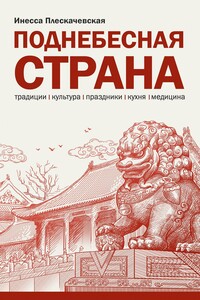So two weeks passed, while I was beginning to wish that the masquerade would continue indefinitely, when one day my tutor sent for me.
"So," he said, "we have had play enough, is it not so? Now we shall have work."
In a few words he explained the situation to me. Russia, it seemed, was about to enter into an agreement with England regarding spheres of influence in Persia. Already a certain Baron B (let me call him) was preparing to leave St. Petersburg with instructions to find out in what circumstances the British Government would enter into pourparlers on the subject. Berlin, whose interests in the Near East would be menaced by such an agreement, needed information and delay. I was to secure both. It was the old trick of using a little instrument to clog the mechanism of a great machine.
Let me explain here a feature of the drawing up of international treaties and agreements which, I think, is not generally understood. Most of us who read in the newspapers that such and such a treaty is being arranged between the representatives of two countries, believe that the terms are even then being decided upon. As a matter of fact these terms have long since been determined by other representatives of the two countries concerned, and the present meeting is merely for the formal and public ratification of a treaty already secretly made. The usual stages in the making of a treaty are three: First, an unofficial inquiry by one Government into the willingness or unwillingness of the other Government to enter into a discussion of the question at issue. This is usually done by a man who has no official standing as a diplomat at the moment, but whose relations with officials in the second country have given him an influence there which will stand his Government in good stead. After a willingness has been expressed by both sides to enter into discussions, official pourparlers are held in which the terms of the agreement are discussed and decided upon. Finally, the treaty is formally ratified by the Foreign Ministers or special envoys of the countries involved. Secrecy in the first two stages is necessitated by the fear of meddling on the part of other Governments, and also by a desire on the part of any country making overtures to avoid a possible rebuff from the other; and it explains why negotiations which are publicly entered into never fail.
But to return to my adventures. My Government had learned of the impending pourparlers between Britain and Russia; it knew that Baron B's instructions would contain the conditions which Russia considered desirable. What was necessary was to secure these instructions.
Now, my tutor had, long before this, seen to it that I should be on friendly terms with various members of the Baron's household; and he had been especially insistent that I should pay a good deal of attention to the young daughter of the house, whom I shall call Nevshka. I had wondered at the time why he should do this; but I obeyed his instructions with alacrity. Nevshka was charming.
Soon I saw the purpose of this carefully fostered friendship.
"The Baron will spend this evening at the club," I was informed. "He will return, according to his habit, promptly at twelve. You will visit his house this evening, paying a call upon Nevshka. You will contrive to set back the clock so that his home-coming will be in the nature of a surprise to her. The hour will be so late that she, knowing her father's strictness, will contrive to get you out of the house without his seeing you. That is your opportunity! You must slip from the salon into the rear hall but do not leave the house. And if, young man, with such an opportunity, you cannot discover where these papers are hidden and secure them, you are unworthy of the trust that your Government has placed in you."
I nodded my comprehension. In other words I was to take advantage of Nevshka's friendship in order to steal from her father I was to perform an act from which no gentleman could help shrinking. And I was going to do it with no more qualms of conscience than, in time of war, I should have felt about stealing from an enemy general the plan of an attack.


